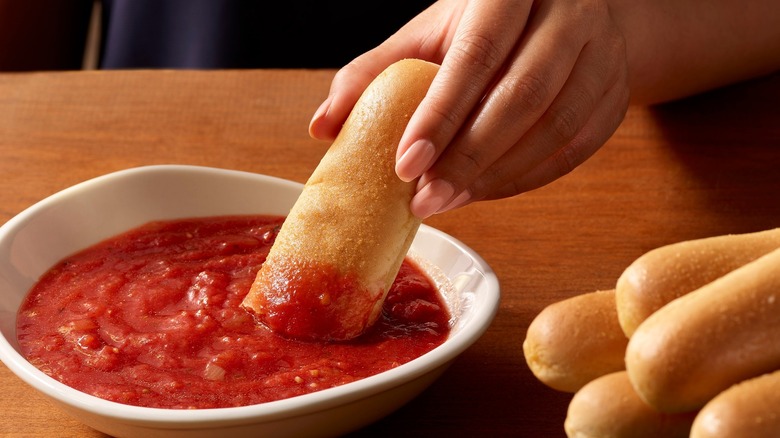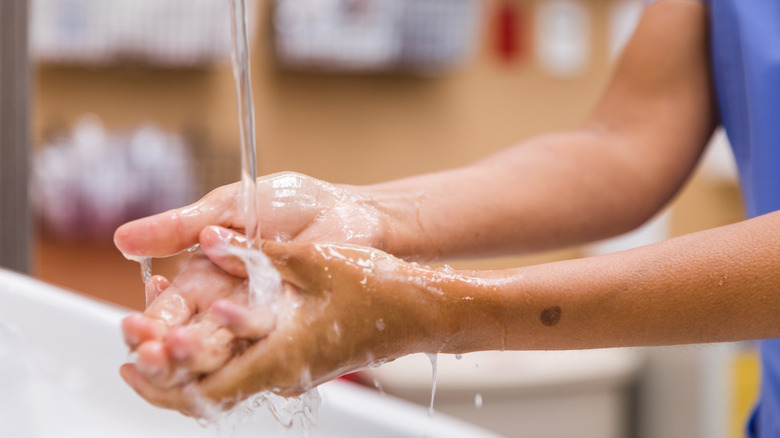The Time An Olive Garden Allegedly Gave Over 300 People Norovirus
In 2006, long before COVID-19 was a twinkle in the eye of epidemiologists, more than 300 Olive Garden patrons, plus a couple of employees, found themselves in the throws of something almost as deadly: norovirus. The virus, which is sometimes candidly referred to as the vomiting bug, tends to find its way onto cruise ships, restaurants, and other establishments with prepared food and drinks. In this case, it allegedly landed in an Olive Garden outside Indianapolis.
Thankfully, no one died, and CNN reported that the outpost of America's favorite unlimited breadstick emporium reopened after a swift and thorough cleaning. Of course, those infected by the December 2006 outbreak had to deal with some unpleasant symptoms, such as nausea, vomiting, diarrhea, and fever.
Later that month, two women who got sick from the virus sued the chain in a class-action lawsuit. Unfortunately, it wouldn't be the last time Olive Garden and norovirus would appear in the same headline.
Norovirus strikes again
Just a few years after Olive Garden's first alleged norovirus outbreak, the bug had a second wind at an outpost in Salem, Oregon. Tigard resident Miranda Fisher and 12 others got sick after dining there with a group of friends and family members.
The Oregonian reported that Fisher, who was pregnant at the time of the infection and tested positive for norovirus before giving birth, filed a lawsuit against Olive Garden, claiming that the virus interfered with her natural birth plan. In response, an Olive Garden spokesperson denied accountability on behalf of the chain, claiming not to have any indication that there was a norovirus outbreak at the restaurant.
Of course, Olive Garden is by no means the only institution with a history of alleged norovirus outbreaks. According to the CDC, there were nearly 2,000 outbreaks in NoroSTAT-participating states between the summers of 2022 and 2023 alone.
Don't forget your hand sanitizer
While COVID-19 is an airborne virus spread through droplet transmission, one can catch norovirus by touching an infected person, consuming contaminated food or drinks, or touching contaminated surfaces. As such, places like restaurants and cruise ships — enclosed spaces where there are large groups eating the same prepared food and sharing surfaces — can easily play host to norovirus outbreaks.
So, while wearing a mask will not protect you from norovirus, everything else you learned about protecting yourself and others from COVID-19 applies: Wash your hands often with soap and water and keep hand sanitizer and surface wipes on hand when you plan to dine in a crowded area. This is especially important in the winter when all sorts of viruses are reemerging. When it comes to staying safe at home, the CDC also recommends washing fruits and vegetables, thoroughly cooking seafood, and properly cleaning laundry.


